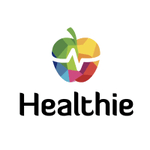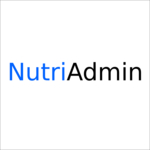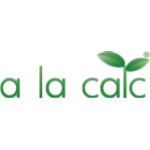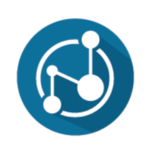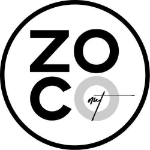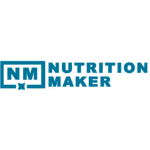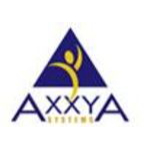List of Best Nutritionist Software
Showing 10 of 20 productsHealthie is a wellness platform that offers a seamless, personalized approach to health and wellness for individuals and healthcare professionals alike. Designed to revolutionize the way we prioritize and manage our well-being, Healthie empowers user...Read Healthie Reviews
Nutrium is a software designed to revolutionize the way nutrition professionals manage and track their clients diets. With its user-friendly interface and powerful features, Nutrium streamlines the nutrition counseling process, allowing professionals...Read Nutrium Reviews
SimplePractice is a practice management software designed to help professionals in the healthcare and wellness industry efficiently manage their daily tasks. With user-friendly features and a sleek interface, SimplePractice streamlines administrative...Read SimplePractice Reviews
Nutriadmin is a software designed specifically for nutrition professionals. It simplifies and streamlines various tasks such as client management, meal planning, and appointment scheduling. With Nutriadmin, you can focus on providing exceptional care...Read Nutriadmin Reviews
A la Calc is a and user-friendly software designed to make your calculations effortless. Say goodbye to tedious number crunching and hello to a simpler and more efficient way of managing your data. With A la Calc, you can handle complex calculations...Read A la Calc Reviews
DietMaster Pro is a software designed to help you achieve your health and wellness goals. With personalized meal plans, tracking capabilities, and access to certified nutritionists, DietMaster Pro takes the guesswork out of healthy eating. Say hello...Read DietMaster Pro Reviews
Nutritics the ultimate nutrition analysis software for professionals. With advanced features and user-friendly interface, Nutritics allows you to easily track and analyze dietary intake, create personalized meal plans, and collaborate with clients. S...Read Nutritics Reviews
Zoconut is a solution for modern website management. Designed to simplify the process of creating and maintaining websites, Zoconut offers innovative features and user-friendly tools that cater to the evolving needs of businesses. With Zoconut, say g...Read Zoconut Reviews
The Nutrition Maker is an innovative and user-friendly software designed to help individuals take control of their health and well-being. With its customizable features and extensive database, this tool is the perfect companion for anyone looking to...Read Nutrition Maker Reviews
Nutritionist Pro, a powerful software designed for nutritionists to easily analyze and manage client data. With its efficient tools and user-friendly interface, Nutritionist Pro streamlines the process of creating personalized dietary plans and track...Read Nutritionist Pro Reviews
- What Is Nutritionist Software?
- Top Reasons Why Businesses Need Nutritionist Software?
- What Are the Top Key Features of Nutritionist Software?
- What Are the Top Benefits of Nutritionist Software?
- What Are the Steps to Choose the Right Nutritionist Software?
- What Are the Types of Nutritionist Software for Different Industries?
- What Are the Technology Trends for Best Nutritionist Software?
- What Are the Deployment Options for Nutritionist Software?
What Is Nutritionist Software?
Nutritionist software refers to a computer program or application specifically developed to facilitate the operations of nutritionists in their professional practice, enabling them to effectively engage with clients and manage nutrition-related data.
Dietitian management software is employed for the purpose of storing patient data, monitoring dietary modifications, generating nutrition assessments, and generating client reports.
Furthermore, the best nutritionist software offers the opportunity to access a wide range of nutritional databases. These databases can be utilized to develop meal plans, track nutrient consumption, and assess modifications in dietary patterns.
In addition to its primary function, nutritionists can utilize the program to gain access to a diverse range of materials pertaining to nutrition and diet. These resources encompass nutritional calculators, audiobooks on nutrition, articles pertaining to nutrition, and dietary plans. In addition to its primary function, nutritionist management software possesses the capability to generate comprehensive reports with visual aids such as charts and tables.
Furthermore, this program enables the creation of nutrition charts, which serve as valuable tools for clients to monitor and assess their progress. Nutritionist software generally facilitates the provision of precise and reliable information on nutrition, food, and health by nutritionists to their clients, hence streamlining the overall nutrition procedures.
Top Reasons Why Businesses Need Nutritionist Software?
1. Online nutritionist software possesses the capability to furnish precise dietary advice and monitor nutritional consumption.
2. This tool has the potential to facilitate the creation of novel health and wellness initiatives.
3. Dietitian management software has the potential to enhance employee productivity within enterprises through the provision of personalized nutrition advice that caters to particular requirements.
4. The utilization of this tool enables individuals to access a diverse array of nutritional information, valuable resources, and evidence-based dietary guidance.
5. The utilization of nutritionist software within enterprises has the potential to mitigate healthcare expenses through the encouragement of improved dietary practices and lifestyle decisions.
6. The best nutritionist software has the capability to generate automated computations and reports, facilitating the swift identification of areas requiring enhancement and enabling the monitoring of progress.
7. The best nutritionist software possesses the capability to provide nutrition data in a timely manner, enabling both management and customers to monitor their nutritional intake and progress.
8. The implementation of a nutritionist management software system can contribute to the assurance of enterprises' compliance with regulatory mandates and adherence to industry benchmarks pertaining to nutritional aspects.
9. The program offers proactive and easily accessible nutritional counseling to assist employees in making informed decisions regarding their food choices.
10. Nutritionist software possesses the capability to enhance enterprises' comprehension of their intended client demographic and discern patterns in dietary practices.
11. The process of acquiring, analyzing, and utilizing nutrition-related data is an effective and efficient method.
12. Enterprises have the capability to utilize nutritionist software in order to generate individualized meal plans and customized nutritional guidance that caters to their specific clientele.
13. Online nutritionist software monitors and measures health and wellness programs and aids management in assessing their efficacy.
14. Dietitian management software offers a proactive approach to nutrition advice, emphasizing prevention, in order to assist businesses in establishing better work environments.
15. The implementation of nutritionist management software solution has the potential to yield cost savings for businesses through the reduction of wastage and enhancement of efficiency in the domains of food delivery and meal planning.
What Are the Top Key Features of Nutritionist Software?
The top key features of nutritionist software typically include:
1. Nutrition Assessment: This functionality facilitates the evaluation of a patient's nutritional requirements and dietary patterns by nutritionists, enabling them to offer tailored nutrition recommendations.
2. Meal Planning: A software tool designed for nutritionists has the capability to develop personalized meal plans that align with an individual's specific dietary requirements and preferences.
3. Food and Recipe Databases: The best nutritionist software frequently incorporates extensive food and recipe databases, facilitating convenient access to diverse nutritional information pertaining to different food items.
4. Tracking Tools: Dietitian management software typically includes tracking capabilities that let users to measure their progress and maintain motivation.
5. Nutrition Education: Nutritionist management software applications utilized by nutritionists offer a wide array of educational resources pertaining to nutrition, encompassing lectures, e-books, recipes, and instructional videos.
6. Reports and Analytics: A proficient nutritionist software ought to furnish comprehensive information and analyses pertaining to the dietary patterns, physical activity regimen, and overall nutritional well-being of the patients.
7. Patient Management: The inclusion of patient management functions inside nutritionist software is of significant importance, as it facilitates the efficient recording, tracking, and management of patient information and records by nutritionists.
8. E-commerce Platforms: The best nutritionist software also provides direct e-commerce transactions between the clinician and the patient.
What Are the Top Benefits of Nutritionist Software?
The top benefits of nutritionist software are:
1. Improved Patient Care: Nutritionist software has the capability to offer tailored meal plans and nutritional guidance to individuals, taking into account their specific health requirements, objectives, and personal tastes. This intervention has the potential to significantly enhance the quality of care provided.
2. Advanced Patient Tracking: By utilizing an integrated software system, nutritionists are able to effectively monitor the progress of their patients and make necessary adjustments to their meal plans.
3. Automation for Efficiency: The best nutritionist software has the capability to automate several nutrition-related processes, hence enhancing operational efficiency. These duties include but are not limited to calorie counting, diet tracking, and food logging.
4. Cost Savings: The utilization of nutritionist management software can potentially lead to a reduction in expenses related to personnel recruitment and the production of physical products.
5. Customizable Meal Planning: Dietitian management software facilitates the development of individualized meal plans that are customized to accommodate the specific health requirements and dietary preferences of each patient.
6. Secure Data Storage: The online nutritionist software offers a protected database for the storage of patient data and information. This practice aids in safeguarding patient confidentiality and mitigating the occurrence of errors associated with manual data input and transcribing.
7. In-Depth Nutritional Analysis: Nutritionists are able to utilize specialized software designed for their profession in order to acquire comprehensive information and conduct thorough analysis, hence enhancing their comprehension of individual patients' nutritional requirements.
8. Inclusive Reports: The software utilized by nutritionists has the capability to produce comprehensive reports on patients, thereby offering a holistic overview of their health status.
9. Improved Communication: The utilization of an online communication platform enables online nutritionist software to enhance the quality of communication between nutritionists and their patients.
10. Enhanced Collaboration: The best nutritionist software has the potential to facilitate collaboration among members of the care team, enabling the sharing of resources and insights to enhance patient outcomes.
What Are the Steps to Choose the Right Nutritionist Software?
1. Identify your nutrition practice's needs: Prior to selecting an appropriate nutritionist software, it is imperative to accurately ascertain and delineate the precise requirements of your business. Delineate the objectives that you aim to accomplish with the utilization of a nutrition software program.
When evaluating the subject matter, it is crucial to take into account significant aspects such as meal planning, recipe management, client monitoring, nutritional analysis, and online scheduling for appointments.
2. Research available options: Conduct a comprehensive investigation of the various nutritionist software programs that are currently accessible in order to determine the most suitable one that aligns with your specific requirements. This analysis aims to compare the features of each product and ascertain which one provides the highest level of compatibility and integration with your office environment.
When evaluating the merits of each program, it is important to take into account factors such as reviews, cost, and customer service.
3. Determine budget: Develop a financial plan for the software program. Consider the financial implications of the software, including the cost of acquisition, programming expenses, and any additional fees associated with its deployment. Ascertain whether the vendor provides a complimentary trial or demonstration.
4. Consult experts: Initiate communication with coworkers in order to ascertain the software application they are utilizing and assess its adequacy in meeting their requirements. Kindly solicit feedback regarding the software currently employed and the experiences encountered with the vendor.
5. Implement: After selecting a program, proceed with the implementation process. Collaborate closely with the vendor to ensure accurate configuration of the program, and engage in the tutorials to acquire proficiency in operating the system.
6. Evaluate performance: Once the software program has been implemented, it is imperative to conduct a comprehensive evaluation of its performance. It is imperative to ensure that the program aligns with your specific requirements and that you are utilizing it in the right manner.
In the event of any concerns or difficulties, it is advisable to establish communication with the seller in order to seek assistance or obtain further clarification.
What Are the Types of Nutritionist Software for Different Industries?
The selection of nutritionist software for various businesses is contingent upon the specific requirements and objectives of each company.
In a general sense, nutritionist software can be categorized into four primary classifications:
1. Dietary Tracking Software: This particular software is employed for the purpose of monitoring and examining dietary records, encompassing meals, snacks, and supplements.
Typically, such software incorporates distinct features aimed at facilitating the creation of meal plans and monitoring the consumption of calories and nutrients, thereby simplifying the process of tracking one's dietary advancements. These programs are beneficial for nutritionists who collaborate with individuals, and can also be applied within a foodservice environment.
2. Menu Planning Software: Menu planning software is utilized by nutrition professionals to facilitate the creation of well-balanced menus for various establishments such as restaurants, hospitals, schools, and other similar entities. Frequently, these applications incorporate features that facilitate the computation of portion sizes and caloric content, with comprehensive analyses pertaining to nutritional elements such as fat, carbs, and protein.
3. Research Software: This particular software is utilized for the purpose of conducting advanced study and analysis on subjects pertaining to nutrition and health. An academic food composition software generally encompasses a comprehensive compilation of food composition data, mathematical equations and calculations for nutrient analysis, as well as repositories of research works.
4. Food Standards Software: Food standards software is employed to guarantee adherence to the norms and standards established by governmental entities and food quality organizations within the food business.
Frequently, it encompasses various instruments designed for the computation of nutritional values pertaining to food items and menus, and serves the purpose of guaranteeing adherence to labeling and safety laws.
What Are the Technology Trends for Best Nutritionist Software?
The prevailing technology advances in the realm of nutritionist software mostly revolve around enhancing user-friendliness, optimizing accuracy and precision, and augmenting the visibility and comprehensiveness of nutrition data.
One prevalent trend in contemporary technology involves the implementation of artificial intelligence and machine learning algorithms for the purpose of organizing and evaluating user data. These methods enable nutritionist software to efficiently and precisely compute dietary requirements.
Moreover, a multitude of software applications are currently leveraging cloud technology to facilitate enhanced cooperation among users and nutrition professionals. This facilitates the process for nutritionists to analyze data, engage in collaborative efforts for implementing modifications, and offer assistance.
In addition, dietitian management software is increasingly integrating the utilization of patient profiles, health records, and wearable technology to systematically monitor data over a period of time and offer enhanced understanding of user health and dietary intake.
The utilization of this data holds the potential to facilitate the development of customized nutrition regimens, while concurrently enhancing the provision of comprehensive healthcare recommendations.
What Are the Deployment Options for Nutritionist Software?
The available deployment options for nutritionist software encompass local hosting, cloud hosting, and web apps. Local hosting refers to the process of installing the software on the user's server or local computer, hence granting them complete autonomy and adaptability in managing the system.
Cloud hosting refers to the practice of hosting software on an external server, hence enabling enhanced cost-efficiency and scalability. Web apps refer to software that users can access through a web browser, which offers advantages such as rapid deployment and perhaps enhanced user accessibility.
